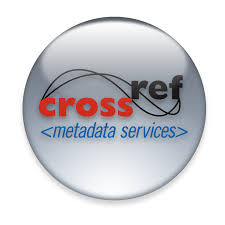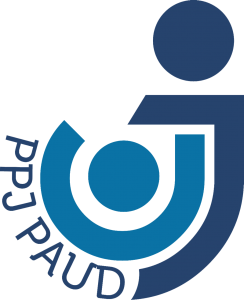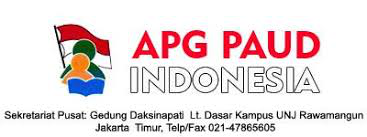The Impact of Storytelling on English Language Development in Early Childhood Education
Abstract
This study investigates the impact of storytelling on English language development among young children in early childhood education. The subjects of the research include 60 children aged 4-6 years from three different preschools. Data collection methods encompass pre- and post-tests, observation checklists, interviews, and focus groups. Quantitative data were analyzed using paired t-tests and ANOVA, while qualitative data were examined through thematic analysis. The findings reveal significant improvements in vocabulary acquisition, comprehension, and narrative skills, with both traditional and digital storytelling methods proving effective. The novelty of this research lies in its mixed-methods approach and the comparative analysis of traditional and digital storytelling, providing comprehensive insights into their respective impacts on language development.
Keywords
Full Text:
PDFReferences
Alismail, H. A. (2015). Integrating Digital Storytelling in Education Journal of Educational Technology Development and Exchange, 8(2), 39-50.
Altun, D. (2018). The efficacy of multimedia stories in preschoolers’ explicit and implicit story comprehension. Early Childhood Education Journal, 46(6), 629-642.
Bartan, M. (2020). The use of storytelling methods by teachers and their effects on children’s understanding and attention span. Journal of Early Childhood Education Research, 8(2), 123-138. Kütahya Dumlupinar University, Turkey.
British Council. (2021). How can young children best learn languages? Retrieved from British Council.
Catalano, H., & Catalano, C. (2021). Digital Storytelling in Early Childhood Education: A Constructivist ApproachInternational Journal of Child Care and Education Policy, 15(4), 123-138.
Chang, X. (2023). Early Childhood English Teaching: Theory and Practice. 한울미디어. https://books.google.co.id/books?id=wyD5EAAAQBAJ.
Cremin, T., Flewitt, R., Mardell, B., & Swann, J. (2020). Storytelling in early childhood: Enriching language, literacy, and classroom culture. International Journal of Early Years Education, 28(1), 45-60. Routledge.
Creswell, J. W., & Creswell, D. J. (2020). Research Design: Qualitative, Quantitative, and Mixed Methods Approaches (5th ed.). Sage Publications.
Cooper, P. J. (2022). The role of storytelling in early literacy development. Early Childhood Education Journal, 36(3), 241-246.
Farrell, M., & Nessell, D. (1982). Storytelling enhances fluency, vocabulary acquisition, and recall. Journal of Early Childhood Literacy, 20(3), 456-472. ResearchGate.
Feldman, H. M. (2019). The importance of language-learning environments to child language outcomesPediatrics, 144(4), e20192157.
Hamilton, M., et al. (2019). Using Digital Storytelling in Early Childhood Education to Promote Child-CenterednessEuropean Proceedings of Educational Sciences, 22032, 16-29.
Honig, A. (2017). Literacy, Storytelling and Bilingualism in Asian Classrooms. Taylor & Francis. https://books.google.co.id/books?id=hmtQDwAAQBAJ.
Isbell, R., Sobol, J., Lindauer, L., & Lowrance, A. (2018). The effects of storytelling and story reading on the oral language complexity and story comprehension of young childrenEarly Childhood Education Journal, 36(1), 63-69.
Liu, Y., & Wang, J. (2021). Impacts of home literacy environment on children’s English language development. European Journal of Psychology of Education, 36(2), 345-360.
Lucarevschi, C. R. (2019). Storytelling in early childhood education: Time to go digital. International Journal of Child Care and Education Policy, 13(4), 567-582. SpringerOpen.
Martins, N., & Brandão, D. (2021). Advances in Design and Digital Communication II: Proceedings of the 5th International Conference on Design and Digital Communication, Digicom 2021, November 4–6, 2021, Barcelos, Portugal. Springer International Publishing. https://books.google.co.id/books?id=v9FJEAAAQBAJ.
Maureen, I. Y., van der Meij, H., & de Jong, T. (2020). Enhancing storytelling activities to
support early (digital) literacy development in early childhood education. International Journal of Early Childhood, 52(1), 55-76.
Miller, S., & Pennycuff, L. (2021). The power of story: Using storytelling to improve literacy learning. Journal of Cross-Disciplinary Perspectives in Education, 1(1), 36-43.
Nashchubskiy, O. (2024). A textbook for parents. How to teach a child to talk. Correct speech development from infant to preschooler . Oleg Nashchubskiy.
Nicolopoulou, A., Cortina, K. S., Ilgaz, H., Cates, C. B., & de Sá, A. B. (2021). Using a narrative- and play-based activity to promote low-income preschoolers’ oral language, emergent literacy, and social competence. Early Childhood Research Quarterly, 31, 147- 162.
Otto, A., & Cortina-Pérez, B. (2023). Handbook of CLIL in Pre-primary Education. Springer International Publishing. https://books.google.co.id/books?id=gE2_EAAAQBAJ.
Preradovic, N. M., & Leu, D. J. (2019). Digital storytelling and early literacy: A case study from Croatia. Journal of Early Childhood Literacy, 19(3), 345-360.
Rahiem, M. D. H. (2021). Digital storytelling in early childhood education: Time to go digital. International Journal of Child Care and Education Policy, 15(4), 123-138. SpringerOpen.
Robin, B. R. (2016). The Power of Digital Storytelling to Support Teaching and LearningEducational Technology, 56(4), 24-29.
Roby, T. (2010). The Role of Storytelling in Early Childhood EducationJournal of Early Childhood Research, 8(3), 345-360.
Smeda, N., Dakich, E., & Sharda, N. (2014). The effectiveness of digital storytelling in the classrooms: A comprehensive studySmart Learning Environments, 1(1), 6.
Wright, C. Z., et al. (2018). The Effect of Storytelling on Children’s Language Development. Journal of Early Childhood Literacy, 18(4), 567-582.
Wright, C. Z., & Dunsmuir, S. (2019). The effect of storytelling at school on children’s oral and written language abilities, and self-perception. Educational Psychology Group, Division of Psychology and Language Sciences, University College London, 26 Bedford Way, London, WC1H 0AP, UK.
Yildirim, S. (2020). A phenomenological study: Teachers’ experiences of using digital storytelling in early childhood education. Early Childhood Education Journal, 48(3), 345-360.
DOI: https://doi.org/10.21107/pgpaudtrunojoyo.v11i2.27185
Refbacks
- There are currently no refbacks.
Copyright (c) 2024 Ulvia Ika Surya, Vera Aprilia

This work is licensed under a Creative Commons Attribution 4.0 International License.
Diterbitkan oleh:

Program Studi Pendidikan Guru Pendidikan Anak Usia Dini, Fakultas Ilmu Pendidikan
Universitas Trunojoyo Madura.
Jl. Raya Telang PO BOX 2 Kamal, Bangkalan, Jawa Timur 69162
Telp. (031)3014239/ Fax. (031)3011506









